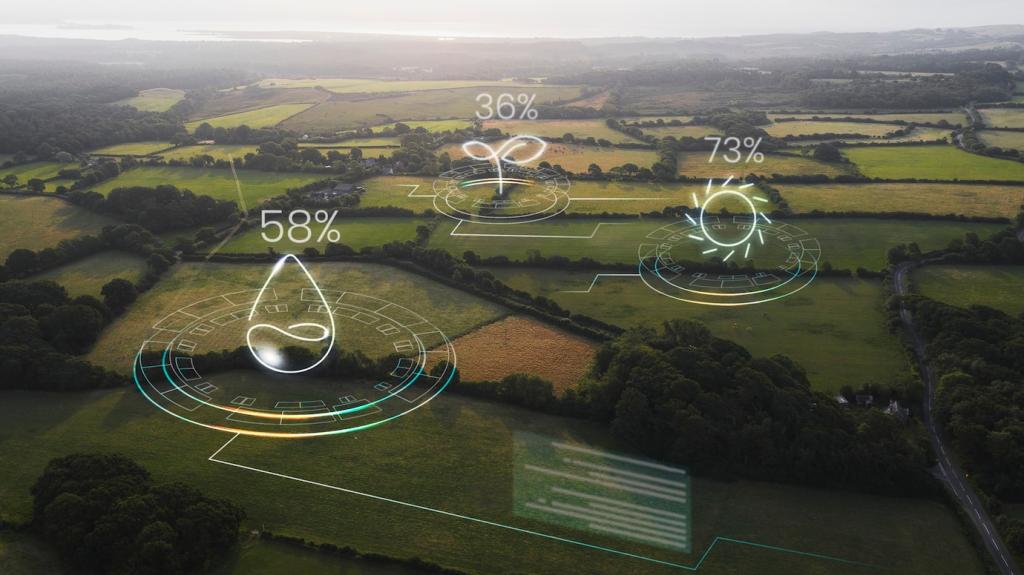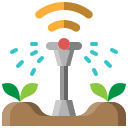Integrating AI in Smart Irrigation Systems
In the age of digital transformation, agriculture is experiencing a significant shift driven by intelligent technologies. Among these, AI-powered smart irrigation systems have emerged as a revolutionary tool for optimizing water usage, improving crop yields, and reducing operational costs. By harnessing the power of artificial intelligence, farmers and agronomists can make data-driven decisions, automate irrigation processes, and ensure sustainable water management. This integration represents a critical advancement for meeting the agricultural challenges of today and the future while aligning with environmental stewardship and resource efficiency.

Predictive Analytics for Irrigation Schedules
Predictive analytics play a crucial role in defining optimal irrigation schedules tailored to specific crop needs and local conditions. By analyzing historical weather data, soil moisture content, plant growth stages, and meteorological forecasts, AI-powered systems can accurately predict when and how much water is required. This predictive capacity allows farmers to avoid both overwatering and underwatering, which can negatively impact crop health and yield. The continuous feedback loop between sensor data and AI models enables dynamic adjustments, ensuring that water is supplied only when necessary and in the precise amounts needed for each zone or crop type.

Real-Time Monitoring and Adaptive Control
Smart irrigation systems equipped with AI are constantly monitoring a multitude of parameters in real time, such as soil moisture, temperature, humidity, and crop stress indicators. The AI algorithms process this incoming data to detect deviations from optimal conditions and automatically adjust irrigation levels without human intervention. This adaptive control minimizes human error, reduces labor requirements, and ensures that plants receive consistent care regardless of changing weather patterns. Moreover, by integrating remote sensing and IoT connectivity, these systems provide farmers with actionable insights and alerts, empowering them to oversee large agricultural areas efficiently.

Efficient Use of Water Resources
One of the most significant benefits of integrating AI into smart irrigation is the maximization of water use efficiency. By leveraging real-time data and adaptive algorithms, water is delivered precisely where and when it is needed, significantly reducing losses due to evaporation, runoff, or deep percolation. These gains are particularly valuable in regions facing water scarcity or unpredictable rainfall. Enhanced efficiency not only conserves a vital natural resource but also reduces energy consumption associated with pumping and distributing water, resulting in lower operational costs and a smaller environmental footprint for agricultural enterprises.
Enhancing Crop Health and Yield

AI-powered smart irrigation systems are adept at detecting early signs of crop stress long before they become visible to the human eye. By analyzing data from soil and plant sensors, drones, and imagery, AI models can identify patterns indicating water deficiency, nutrient shortages, or disease onset. This early detection capability allows for timely interventions, preventing irreversible damage to crops and maintaining consistent productivity. Farmers can thus respond proactively to potential threats and optimize their use of fertilizers, pesticides, and other crop inputs, supporting both ecological sustainability and higher-quality harvests.
Sustainability and Environmental Impact
Water Conservation and Reduced Waste
AI-integrated irrigation systems are engineered to optimize every drop of water used in the agricultural process. By continuously monitoring environmental conditions and crop requirements, these systems ensure that water is allocated precisely and waste is minimized. This targeted approach is especially vital in regions where water is a scarce and valuable commodity. Effective water conservation not only preserves local water tables and reduces the reliance on unsustainable withdrawals but also helps maintain ecosystem services provided by healthy waterways and wetlands, reinforcing agriculture’s role as a steward of natural resources.
Minimizing Chemical Runoff and Soil Erosion
Precise irrigation made possible by AI decreases the risk of overwatering, which is a leading cause of fertilizer leaching, pesticide runoff, and soil erosion. When water is applied in correct amounts only where it is needed, it reduces the likelihood of excess chemicals carrying off into nearby streams or groundwater, protecting both the farm and surrounding habitats. In turn, this responsible management practice preserves soil structure, maintains nutrient balance, and safeguards local biodiversity. Farmers experience the dual benefit of healthier crops and reduced environmental liabilities, aligning production with ecological standards and consumer expectations.
Contribution to Climate Resilience
AI-enhanced smart irrigation supports climate resilience by enabling adaptive management in the face of unpredictable weather patterns and water supplies. Equipped with predictive analytics and real-time monitoring, these systems can quickly respond to drought, heatwaves, or excessive rainfall, modifying irrigation plans instantaneously to protect crops. This agility reduces the vulnerability of agricultural operations to climate shocks, ensuring reliable harvests and long-term viability. As weather extremes become more common, the capacity of AI-driven technologies to support adaptive farming is an invaluable asset for future-proofing the agricultural sector.
